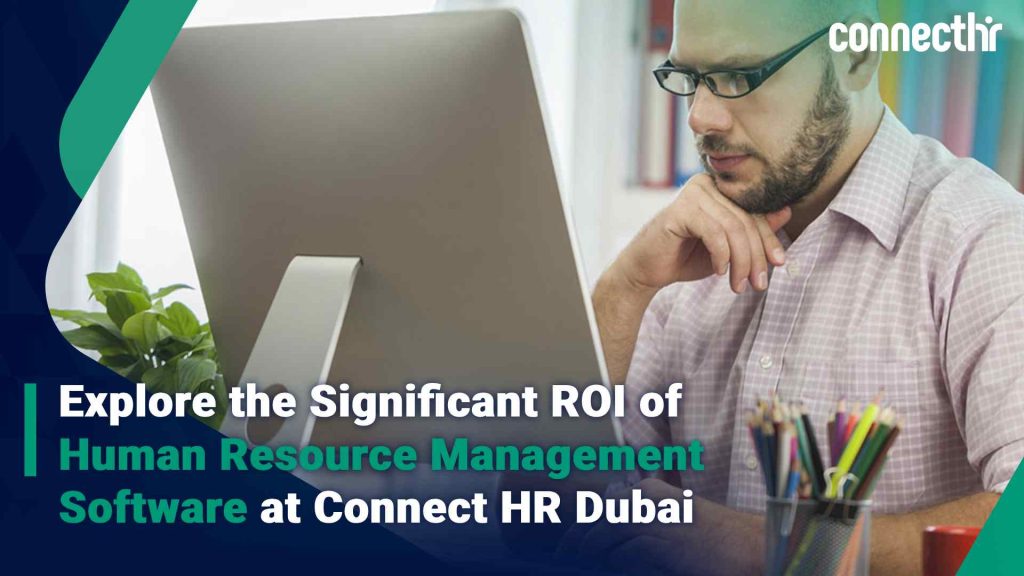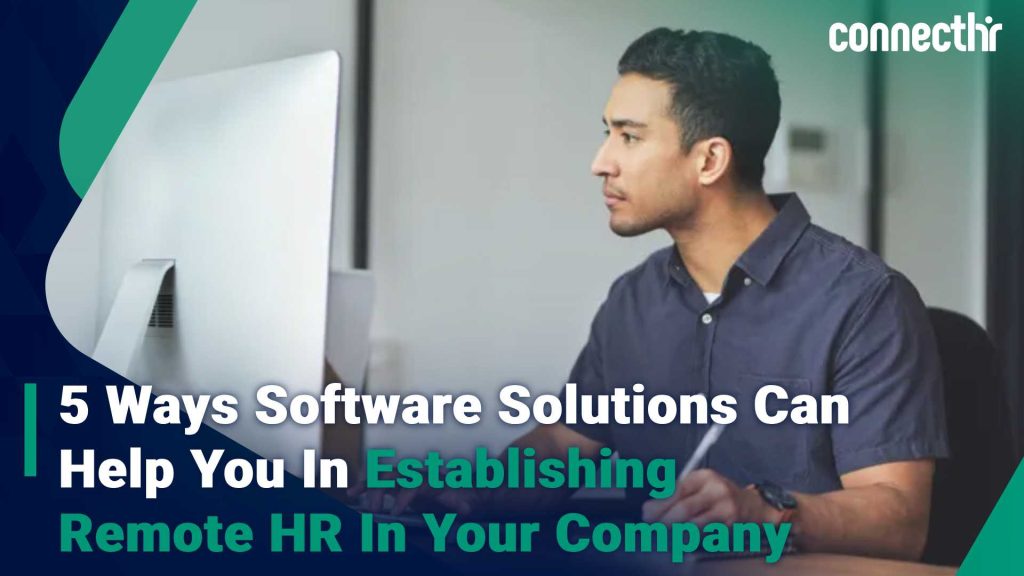It takes a lot of time to run a successful business. Companies need to manage the finances, personnel, timesheets, paperwork, inventories, and accounting. Some things can be leaked when there is so much to keep track of. Payroll administration is sometimes one of the most critical aspects to overlook.
In this post, we will go over a remedy to a problem with administrative management that you might be experiencing in your company. You will discover why to integrate payroll with another HR service software, as well as the advantages it might provide for your company. These are the following subjects to covert in this article:
- What is Payroll?
- Advantages of Payroll Outsourcing.
- What to consider when we want to outsource payroll?
- How to integrate payroll with HR services?
- What is HRMS?
- Which benefits can we obtain by integrating payroll with HRMS?
1. What is Payroll?
We must begin at the beginning to get to the base of your company’s payroll and HR management issues. Payroll administration requires a thorough understanding of your company’s payroll. Simply put, payroll refers to an employer’s payment of employees.
Let me try to explain it a bit more clearly. Payroll entails the distribution of funds via checks and direct deposits. It also entails keeping track of such payments and paying taxes on the employees’ behalf. Traditionally, the HR department was in charge of this inside the corporation. Nowadays, companies outsource them.
1.1 Payroll Outsourcing.
Juggling a variety of administrative chores is part of running a firm, but most successful entrepreneurs know how to delegate. Roles and duties must be delegated to the appropriate personnel to maintain a high level of service. This is what payroll outsourcing may provide for your company.
Simply explained, payroll outsourcing is handing over some or all of your payroll management to a third-party professional. The payroll solution you select will work with your company’s HR department to integrate its services and deliver them each pay cycle. Payroll providers may now supply their clients with more services thanks to the cloud and several software platforms.
2. Advantages of Payroll Outsourcing.
Payroll outsourcing is about more than just making sure employees are paid on time. Payroll is a time-consuming and difficult process. The HR department must typically devote a significant amount of time and effort. This might lead to a drop in output and difficulties sustaining the company’s human capital.
As a result, there are several advantages to outsourcing to a trained and experienced source. These HR service providers, such as Connect HR, ensure the improvement of business management. This way, Employees can focus their attention and functions on crucial parts of the organization.
You can find suppliers with years of expertise on the market to take over your company’s payroll. These skilled providers provide four crucial advantages:
- Efficiency: Payroll administration, as we have seen, can be a time-consuming, costly, and tiring procedure. A payroll provider will most likely be able to manage your regular payroll cycle more effectively once the infrastructure is in place. This will save costs and allow your organization to focus on its core offerings.
- Experience: The administrative and regulatory load of payroll management is significant. Your organization may import the experience and know-how needed for these HR activities by outsourcing payroll. You also avoid significant financial fines and damage to your reputation.
- Adaptability: Payroll outsourcing services are available that can be tailored to your company’s specific needs and financial resources. They can also be scaled up and down as those things change. In practice, this translates into a high level of payroll performance even as your company grows or faces challenges.
- Security: When managing payroll, we will be dealing with sensitive personal data, including bank account information. Even the largest companies in the world often have security breaches. If you are concerned about this, there are providers with a proven security model.
3. What to consider when we want to outsource payroll?
In the payroll department, there is no space for error. Outsourcing payroll is the way to go if your firm lacks the necessary personnel to manage payroll. However, there are a few things to think about before deciding to outsource. Big rewards come with great obligations, so we must carefully consider our alternatives.
Finding the proper match when working with an HR service provider is critical to the partnership’s success. Some payroll firms may have a track record of achievement in the field you require. However, it is advisable to filter out providers that can’t integrate with your present technology or HR management systems.
In addition, there are important factors to consider. Which are:
- Performance Metrics: Metrics are quite useful when it comes to keeping track of administrative duties. They not only assist us in keeping track of the figures, but they also assist us in setting goals. The payroll outsourcing company must guarantee that the KPIs are handled correctly.
The measurements must be presented in a format that is simple to understand and free of errors. - Services: We must research the possibilities to the millimeter before hiring a payroll service provider. We should ask ourselves, Does it cover the function that we need? Does it have any prior experience in this field? Is it compatible with payroll software? Is there a fee associated with it?
These are some of the concerns to address before choosing a service provider. The goal is to find a supplier that will guarantee service and administration in the event of business expansion. - Data security management: As previously stated, outsourcing payroll puts the information of employees at risk. In the event of information breaches, we must evaluate the suppliers’ response strategy. This is something we must consider before employing any service provider.
4. How to integrate payroll with HR services?
Various HR-related corporate operations have benefited from technological advancements. The integrated payroll system has arrived with the arrival of the digital era. It aids businesses seeking to increase their efficiency and management.
Integrating the payroll system with HR services improves data quality, accuracy, and accessibility while also maximizing the company’s potential. Integrating the payroll system with HR services streamlines operations while also increasing payroll accuracy, security, and efficiency. Another step ahead is the implementation of an integrated payroll system.
Today’s businesses require systems that integrate best-in-class HR operations with skilled payroll administration. As a result, payroll processes are increasingly being integrated with other outsourced HR services. This enables the organization to delegate management of a variety of services to HR specialists.
These administrative activities, which need the time and commitment of a work team, assist to lighten the strain. Payroll services are frequently connected with other services such as HR payroll software, leave management software, and the well-known HRMS.
5. What is HRMS?
Human Resources Management Systems, or HRMS for short, are software systems that are used to handle HR and related business operations. An HRMS helps a company to have a complete image of its employees. Also, to remain in compliance with changing tax and labor regulations. In a nutshell, a service that oversees all aspects of the company’s HR department.
HR is not the only department that benefits, though. Companies can provide self-service for typical activities to managers and staff. Executives may also utilize an HRMS to produce data on worker trends and their consequences for the company. All teams benefit from integrating HRMS with the company’s payroll system.
5.1 Why HRMS is key in modern companies?
To maintain revenue-per-employee KPIs up to date, companies must precisely measure labor expenses today. Firms have to implement self-service capabilities with overworked HR departments. Fortunately, a contemporary HRMS offers a variety of benefits, including precise financial data reporting and secure self-service.
5.2 Roles of an HRMS.
When determining which HRMS is best for your company, it is useful to consider in terms of functional components. Typically, these HRMS providers cover seven roles or functions, with four of them being the most important. Because they include HR obligations, these tasks are the frequently most well-supported by suppliers.
The four most significant topics that most HRMS of various firms cover are:
- Workers Management: This feature creates a single interface to help with analysis, reporting, and compliance. It enables you to organize your workforce into organizational units like departments or locations, build manager-employee reporting connections, and match payroll with accounting cost centers.
- Workforce Administration: Employee development, management evaluations, and disciplinary actions are all tracked here by HR staff. It also handles compensation planning, performance management, and other tasks. HR can optimize automation, control, and efficiency by creating timesheet structures, overtime regulations, time-off policies, and approval chains.
- Employee commitment: People who are more engaged generate higher-quality work, completely embrace the company’s values, and carry out the company’s mission. It is critical for production to keep the worker engaged with the firm. This is why HRMS is the best approach to finish a training course, chart a career path, and so on.
- Payroll Management: Nowadays, is the most important feature of HRMS. Employee and employer benefit elections and expenses are covered through payroll services. Full-service payroll systems also automate tax filing and payment.
Self-service functionalities also allow workers to make adjustments to their elective deductions, direct deposit accounts, and other accounts without requiring HR support.
6. Which benefits can we obtain by integrating payroll with HRMS?
Having an HRMS means having a central repository for all of your workforce information. It reduces compliance concerns by combining payroll management with HRMS. It also increases HR professionals’ productivity and streamlines their operations. Despite the fact that it is a system that deals with problem-prone management, the HRMS has a lot of advantages.
HRMS can help with more accurate recruiting, more detailed insights, creating a self-service culture among workers, increasing employee engagement with the firm, and a variety of other HR management duties.
Here are four advantages that integrating payroll and other administrative operations with HRMS will provide for us as a company:
- Reduced costs: Payroll and benefits cost management is a primary responsibility for all businesses. Wages and payroll taxes are often among the most costly line items. HRMS allows HR departments to minimize expenses while maintaining a positive employee experience.
- Controlled payroll management: We can have more control over all employee payments since payroll administration is incorporated into HRMS. We will have all of the information in one place thanks to solutions like HR payroll software. In such a way that the data is easily accessible to both the project team and the company’s internal HR department.
- More accurate data: Without an HRMS, employees, and managers create data in various places, from spreadsheets to expense apps to paper records. Having all the data in one place enables better, faster decision-making within the company. In addition, it allows the HR team to spot early indicators of problems, as well as identify at-risk employees.
- Improved recruitment: The HRMS team is tasked with attracting top talent and making the recruitment process more effective. The strategies to achieve this may vary depending on the HRMS provider.
However, HRMS solves this problem by connecting recruiters and candidates through job boards and apps.
7. Connect HR is the right HRMS provider for your company.
By 2023, fewer businesses will be performing administrative tasks on their own. Administrative chores can be delegated to the firm thanks to outsourcing services. Furthermore, when Payroll is combined with HRMS, it creates the ideal package for proper HR administration.
In this method, we may better focus the functions of the company’s departments to improve productivity and human capital. As a result, we strongly advise you to hire an HR services provider. An HRMS provider ensures the integration of payroll into other management services, such as HRMS.
As a result, Connect HR is the best service provider in the UAE. We have over 20 years of HR expertise and can provide the services your organization requires. Connect HR provides everything you need, whether it is payroll administration software or a more comprehensive service like HRMS.





